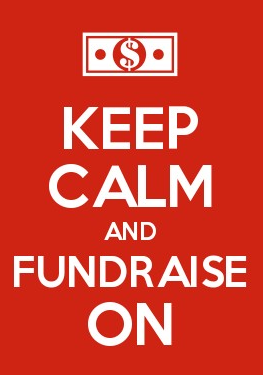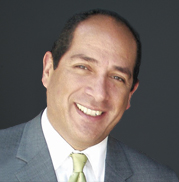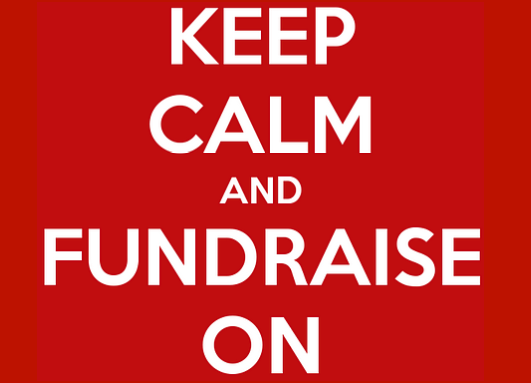 One of the most common things you hear people say when you tell them what you do for a living is “Oh, I hate fundraising! I could NEVER do that for living!” Nice. Yes, there are all kinds of fun responses we can think of. But what it tells us over and over again is that fundraising is widely perceived as something dirty, ethically challenged, or at least uncomfortable. People think that talking to someone about their own money is akin to talking to them about sex, politics, or religion. It’s not.
One of the most common things you hear people say when you tell them what you do for a living is “Oh, I hate fundraising! I could NEVER do that for living!” Nice. Yes, there are all kinds of fun responses we can think of. But what it tells us over and over again is that fundraising is widely perceived as something dirty, ethically challenged, or at least uncomfortable. People think that talking to someone about their own money is akin to talking to them about sex, politics, or religion. It’s not.
The saddest thing is that many fundraisers labor with notions like these. They fear being perceived as a salesman, as too pushy. They don’t want to be perceived as greedy or sneaky.
Another aspect here is that nobody praises fundraisers. Other professions are honored or admired. Ours is distrusted and misunderstood. You won’t see awards for accomplished development officers; you won’t see us on the cover of a magazine or a mom dreaming of her daughter growing up to be a development officer!
When people tell me they could never do fundraising. I look them in the eye and tell them I love my profession, that many jobs are meaningless, but that I am working to make the world a better place.
Development officers have to realize if they are going to be successful that they are doing their prospects a huge service by bringing them philanthropic opportunities. You’re not being pushy or sneaky — you’re bringing them a wonderful gift. I write this piece because I want development officers everywhere to realize that this attitude is essential to success.
This attitude started in me early in my career. Back in the mid 1980’s I was a door-to-door canvasser for the peace movement. I was knocking on doors with a clipboard in my hand, signing up members, talking to them about underground nuclear weapons testing. I had beads, a lot more hair, and was a little full of myself. We had a nightly quota of $80 and a membership was $25. When I was about two months into my job, I was walking on the dark and dangerous winding roads of the Hollywood Hills in Los Angeles. I was trained to “read” a house. Look for signs that they would support our cause, be nice liberal folks. I came up to a mansion… a huge house that had all the bells and whistles. The whale weather vane, a Volvo with groovy bumper stickers, etc. You get it.
I knocked on the door and in front of me appeared a middle-aged women with a pleasant but reserved smile. She invited me in and I gave her my rap. I had it down to 30 seconds, I think. She looked at one of my brochures. Then went for her checkbook! Somehow I saw she was writing a $100 check. At the time to me that was a huge gift and I (stupidly) must have made a happy face or got excited. She stopped in the middle of it all.
“Is this a big deal to you?” she asked. “Do you think this is a big deal to me?”
I stumbled and don’t recall what I said. But she asked me if I had a college education. I told her I did. She said something to the effect of “You’re out here, bringing this cause to me, in the dark on a dangerous road, and all I have to do is write a check.”
She said — and I remember this like it was yesterday — “If you think this is a big deal to me, and you’re that impressed, then you will fail.”
Walking away from there, yes, I had the check. But I realized she was right. I was making it super easy for her to do something. I was doing her a huge service. From then on I knew I had no call to be sheepish, nervous, or scared. I held my head high. Knowing that I was doing something righteous, doing good work makes it so I don’t feel ashamed. I can cold call and look a billionaire in the eye.
We can strengthen this attitude by doing our prospect research — that commonly neglected and most essential part of great fundraising. This is the identification of individuals, corporations, and foundations that have a strong interest in funding your type of work AND the ability to make a major gift. Prospect research is especially essential when looking for individual major donors.
If we do our prospect research, we generally approach people, even on cold approaches, who have strong affinity for what we are raising money for. Many times I have pursued someone who was very well protected. Layered in assistants and aides. Actually talking to them was pretty hard. But I had done my research and I knew that person was passionate about investigative journalism, ethics, and transparency, for example. So once I actually was able to talk with that wealthy philanthropist, she or he was thrilled. I had brought them this opportunity. A new way to do something about the cause they cared about. There was no “arm twisting.” They commonly thank me for my persistence.
When you’re working for a great cause, with a good organization, that’s your fuel and your shield. Use it. This knowledge is the source of courage to do our difficult jobs.
 Armando Zumaya is Senior Vice President, Business Development and Campaign, of The Mexican Museum in San Francisco, Ca. He has over 25 years of experience developing and executing successful fundraising programs for such groups as the American Cancer Society, the Center for Public Integrity, and the San Francisco Opera, and served as National Campaign Director for the University of California at Berkeley.
Armando Zumaya is Senior Vice President, Business Development and Campaign, of The Mexican Museum in San Francisco, Ca. He has over 25 years of experience developing and executing successful fundraising programs for such groups as the American Cancer Society, the Center for Public Integrity, and the San Francisco Opera, and served as National Campaign Director for the University of California at Berkeley.


Happy to answer questions, anything for Investigative Journalism and the Great David Kaplan !